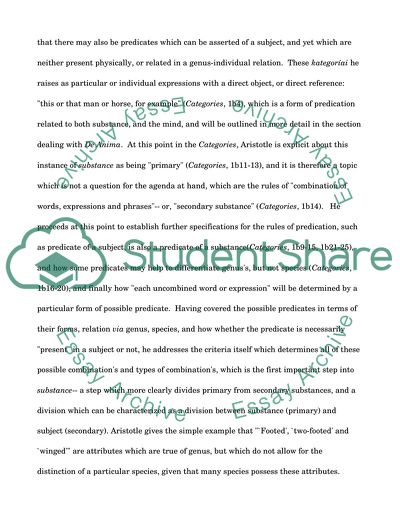Cite this document
(“The Importance of Aristotle's Logic: Ontology Research Paper”, n.d.)
The Importance of Aristotle's Logic: Ontology Research Paper. Retrieved from https://studentshare.org/science/1751844-explain-aristotles-notion-of-substance
The Importance of Aristotle's Logic: Ontology Research Paper. Retrieved from https://studentshare.org/science/1751844-explain-aristotles-notion-of-substance
(The Importance of Aristotle'S Logic: Ontology Research Paper)
The Importance of Aristotle'S Logic: Ontology Research Paper. https://studentshare.org/science/1751844-explain-aristotles-notion-of-substance.
The Importance of Aristotle'S Logic: Ontology Research Paper. https://studentshare.org/science/1751844-explain-aristotles-notion-of-substance.
“The Importance of Aristotle'S Logic: Ontology Research Paper”, n.d. https://studentshare.org/science/1751844-explain-aristotles-notion-of-substance.


